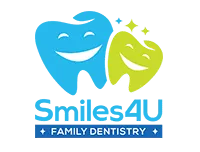When it comes to oral health, misinformation can spread quickly. From old wives’ tales to internet rumors, dental myths have a way of persisting in our collective consciousness. In this blog post, we’ll shine a light on some common dental myths and separate fact from fiction, helping you make informed decisions about your oral care.
Myth 1: “You Only Need to See the Dentist if You Have a Problem”
Reality: Regular dental check-ups are crucial for maintaining optimal oral health. Waiting until you have a toothache or other noticeable issues can lead to more extensive and expensive treatments. Dentists can catch problems early, preventing the need for major interventions down the line. Aim for a dental check-up every six months to keep your smile in top shape.
Myth 2: “Whitening Toothpaste Can Replace Professional Teeth Whitening”
Reality: While whitening toothpaste can help remove surface stains, it’s not a substitute for professional teeth whitening. Over-the-counter products may not be as effective as in-office treatments, which use stronger bleaching agents. Consult with your dentist to determine the best whitening option for your specific needs.
Myth 3: “If My Gums Bleed, I Should Avoid Brushing Them”
Reality: Bleeding gums are often a sign of gum disease, and avoiding brushing can make the problem worse. Gentle and consistent brushing, along with flossing, is essential for maintaining healthy gums. If your gums bleed regularly, consult your dentist to address the underlying issue.
Myth 4: “Sugar is the Sole Culprit for Cavities”
Reality: While excessive sugar consumption can contribute to cavities, it’s not the only factor. Poor oral hygiene, infrequent dental check-ups, and other dietary choices play a role as well. Minimize sugary snacks, brush and floss regularly, and maintain a balanced diet for overall oral health.
Myth 5: “Baby Teeth Don’t Require Much Attention”
Reality: Baby teeth play a crucial role in a child’s development, affecting speech, nutrition, and the alignment of permanent teeth. It’s essential to establish good oral hygiene habits early. Start brushing your child’s teeth as soon as they appear and schedule their first dental visit by their first birthday.
Myth 6: “Brushing Harder Equals Cleaner Teeth”
Reality: Brushing too hard can damage tooth enamel and gums, leading to sensitivity and other oral health issues. Use a soft-bristled toothbrush and gentle, circular motions to clean your teeth effectively without causing harm.
Conclusion:
Dispelling dental myths is essential for promoting accurate information about oral health. By understanding the truth behind common misconceptions, you can make informed decisions to maintain a healthy and radiant smile. Remember, regular dental check-ups, proper oral hygiene, and a balanced diet are key components of a winning oral care routine.
If you have any questions or concerns about your dental health, please reach out to us by Email, Our Contact Form or phone.

